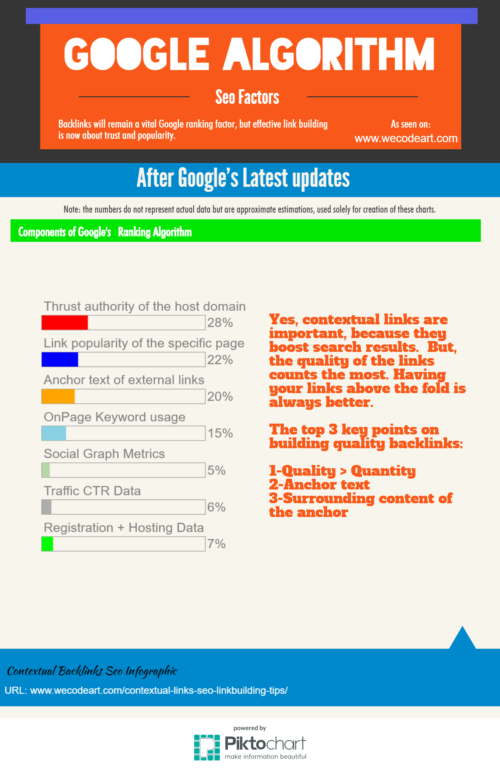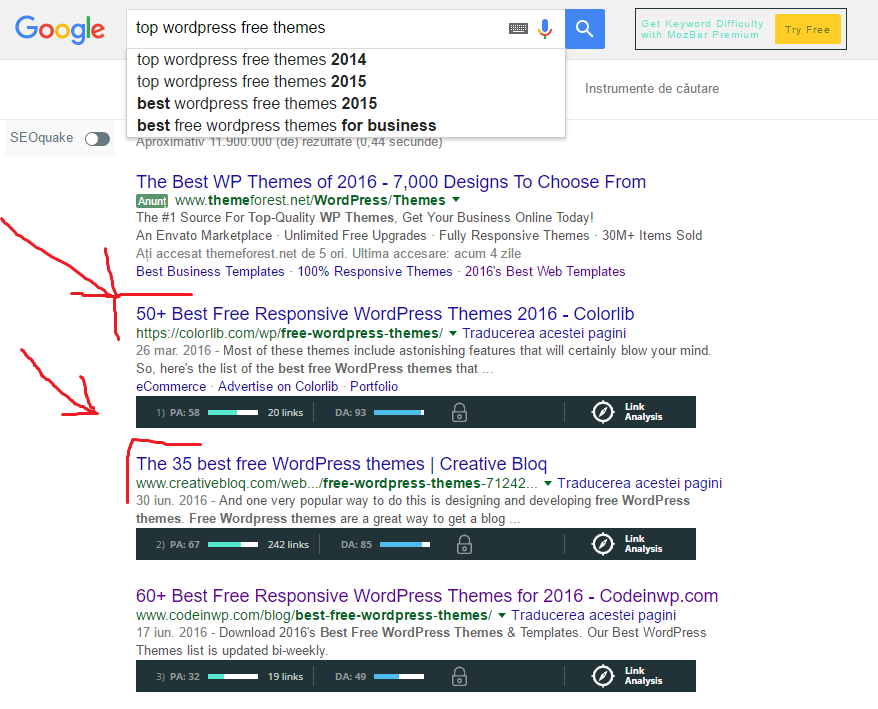Your cart is currently empty!
Contextual links SEO provides a huge benefit to your website if this link building strategy is used correctly. Contextual links are most difficult to get and Google loves to see these types of links. It means that this has a strong impact on search engine rankings. So let’s begin by explaining what I will talk about.
The Definition of Contextual Links Seo
SEO Southampton experts explain that links are made of keywords, or anchor text, that are connected to your webpage, and are found within the written content of your or someone else webpage. So contextual links SEO basically means your link or anchor is surrounded by relevant or similar text in the content. If used effectively, contextual linking is a very strong SEO linking strategy for your website. For example, I’m interested in the phrase on page SEO so I linked this keyword to another post I’ve published earlier. This is called internal linking (links inside a piece of content on your site that is pointing to another piece of content on your site) and benefits for SEO and also for your users. Another type of contextual links is outgoing links (aka external links – from your site to another website). And finally, the 3rd type of contextual links SEO is reciprocal links – wich we will discuss later on this post. Later on, we also explain how to get contextual links like this.

How Contextual Links Seo Helps Your Page Rank HIGHER ?
As we know, in order to build contextual links for ranking higher in the search engine, you need to focus your attention on getting backlinks from authoritative domains. Most important, links surrounded by relevant content to your niche. Building contextual links can also do more harm than good if you do it wrong (eg – linking from poor websites). Contextual links help search engines in developing relevancy factor for both the pages i.e. linking and linked ones. So, linking to authoritative pages like Wikipedia increase the credibility of your content to search engines. It means your content is well researched. Contextual links SEO also enrich users experience which is appreciated by Google.
Here is a quick infographic about contextual links seo:

In other words, earning contextual links helps you a lot to boost your SERP’s, so here are 5 contextual links seo strategies that you should follow:
1 – Quality over quantity links

“Quality is more important than quantity. One home run is much better than two doubles.”
A long time ago, I ranked for No.3 for a Clickbank product review with almost zero knowledge about SEO, and bellow zero knowledge about contextual links SEO. I’ve had no idea about getting contextual links. All I know was to comment on random blogs with my name and blog URL. My blog post was well SEO optimized on a page but that’s it. However, I still ranked for that keyword for a few days because of a large number of blog comments. Today you can’t do that anymore. Google’s search algorithm focuses more on quality contextual links than quantity. You only need a low number of contextual links from authoritative domains to overpass someone who has hundreds of low-quality links. In fact, install MOZ bar (browser extension) and see for yourself. Search something and you will find pages with a lower number of backlinks ranking over pages with hundreds of links. Why ? because they have quality contextual backlinks.
2 – Create quality newsworthy content
As I mentioned on how to on page SEO optimize your posts, quality, newsworthy content is shareable, people talk about it, they want to promote. For example, everyone talks about Pokemon GO and if you are in a video game niche why to talk about something that nobody wants’s to read, share or promote? However, newsworthy content doesn’t mean that news sites only will promote it. Here what I mean is content that is worth to share, promote on social sites. Short version: content that people are interested in. If your content is shareable you will get a lot of backlinks from your audience.
You can find content that worth to share in your niche using Buzzsumo. This tool helps you check your competition content shares based on your keyword input. Using this you can check wich headline performs better and even craft a better one. Headlines, or post titles, are the most important part of your article. Why? Because the majority of people use headlines to decide whether or not to read your article.

3 – Create infographics to earn contextual links
Visual content does not have to be a photograph, meme, or video to succeed. In fact, one of the hottest formats for visual content right now is the infographic. The infographic combines well-designed graphics with bullet point information to present the reader with some sort of relevant data that can be absorbed and used right away. Statistics suggest that infographics are shared on social media three times more than any other kind of visual content. Infographics combine the three things that trigger the best responses from readers: color, a visual representation of data, and relevant information. There are plenty of tools that help you build infographics like Piktochart. In fact, Google recorded more than 67,000 searches per month for the terms ‘infographic’ or ‘infographics’ in 2013. Other statistics say that an infographic is 30 times more likely to be read than a purely textual article. How to get contextual links from this strategy?
- Create an infographic and post it on your site
- Find relevant authority sites based on your niche
- Present them the infographic and offer them something in return for publishing
- Get your contextual backlink
4 – Connect with people in your niche for contextual links seo
How to earn contextual links in this way? Simple – engage with people that run blogs in your niche. If you connect with them and build the relationship you can help each other with contextual links SEO strategy. For example, I earned a do follow link from this awesome website. How to find blogs in your niche?
Step 1
Go to google.com and type the following
- Best blogs + your keyword
- Top blogs + your keyword
- your keyword + blogs (sites etc)
Let’s say I have a free theme that I want to promote. Here are the results I’ve got:

Step 2
Pay attention to the blogs that I’ve highlighted. Let’s focus on those two pages. They make a top with the best free themes for WordPress. You click a page then check if they have a contact page then connect with the blog author. Basically, you send them an email telling them that you have developed a WP theme (eg) that is worth mentioning in one of their posts. When you write emails to popular blog owners (eg. the second blog has Domain Authority of 85 and Page Authority of 67) make sure your emails are as if you’re sending it to a friend, personalized and creative (boring emails don’t even get opened).
A contextual link coming from those pages will be highly valuable for our blog.
5 – Contextual Links SEO – Interlinking ?
Internal links are links that go from one page on a domain to a different page on the same domain. They are commonly used in the main navigation. On an individual page, search engines need to see content in order to list pages in their massive keyword-based indices. One major reason to use this contextual links SEO strategy is that it’s one of the few methods site owners can use to tell Google (and visitors) that a particular page of content is important.
There are some other reasons to implement contextual links in your content like:
- Provides your audience with further reading options
- Helps to improve your ranking for certain keywords
- It helps Google to crawl the site. Internal contextual links in articles, as well as in category and tag pages, help Google to index pages more efficiently.
The best example of internal linking is Wikipedia.
Conclusion – Contextual links SEO worth or not?
There is no question here. Definitely, contextual links SEO is one of the best SEO strategies to build quality backlinks to your pages or domain. Contextual links to boost your SERP quite a lot, so let’s highlight the key points of a successful contextual links SEO strategy:
- Focus on quality links (relevant pages and high DA websites)
- Having your links above the fold is always better. (links in context always worth more than footer or sidebar links)
- Guest posting and infographics are one of the best ways to build contextual links
Google makes decisions based on the quality of the links, relevancy of the surrounding content and the number of those contextual links.
Do you have another strategy to earn contextual links that boosted your SERP? If yes let us know in the comments below.
Share the post:

